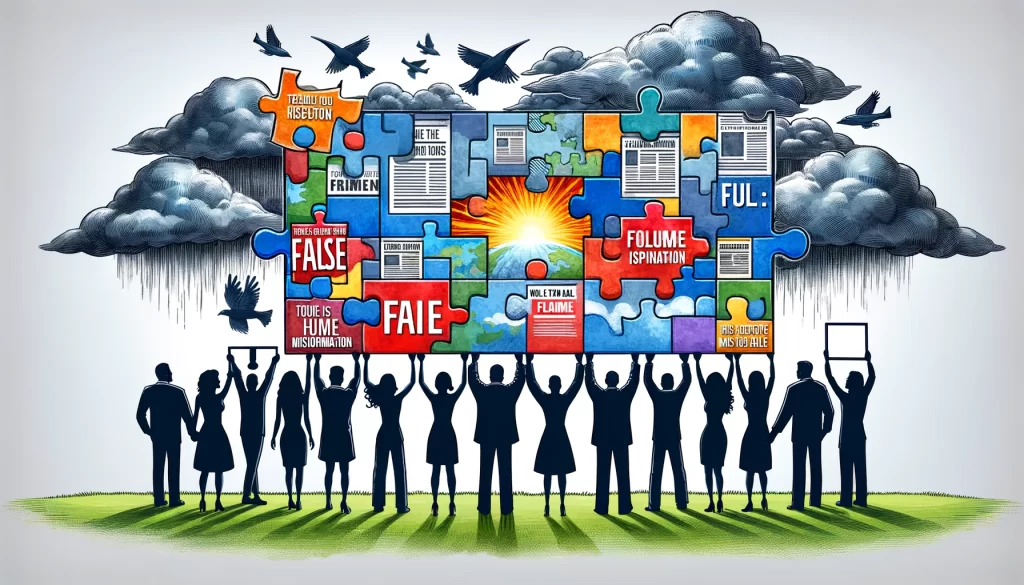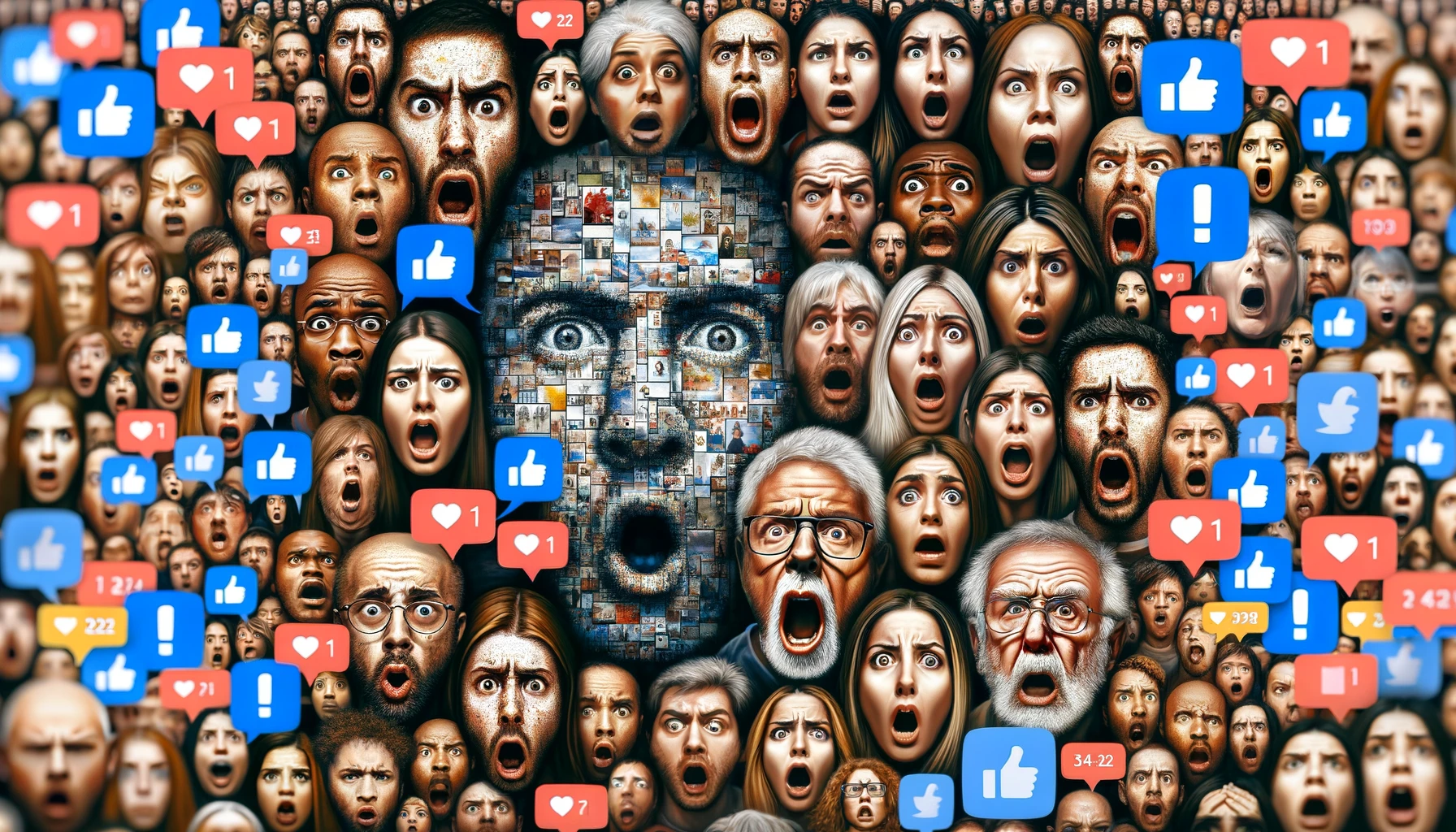The following is an account of how a false claim online managed to spread misinformation to tens of millions of Americans. This story revolves around a claim made by an anonymous user on X, a popular social platform, who alleged that there was a dramatic increase in voters registering without a photo ID in three states—Texas, Pennsylvania, and Arizona. These states are not just any states; two of them are pivotal battlegrounds in the presidential contest.
The claim quickly caught fire, propelled by the winds of public figures’ attention. Elon Musk, the owner of X, labeled the situation as “Extremely concerning.” Georgia Rep. Marjorie Taylor Greene, a known ally of former President Donald Trump, speculated on the involvement of migrants registering to vote with their Social Security numbers meant only for employment. Trump himself, not one to shy away from stirring the pot, took to his social platform to voice his bewilderment about the situation.
As these allegations snowballed, state election officials were thrust into the spotlight to clarify the confusion. Their investigations revealed that the claim was a distortion of data from the Social Security Administration. The figures being circulated were not only incorrect but grossly exaggerated, misrepresenting the actual voter registrations during the cited time period.
Stephen Richer of Maricopa County, Arizona, and Jane Nelson, the Secretary of State in Texas, were among the officials who stepped up to debunk the false claims. Despite their efforts, the original claim had already reached over 63 million views on X, dwarfing the reach of Richer’s clarifications, 2.4 million.
This incident underscores a broader issue within the digital realm: the rise of anonymous social media accounts that wield significant influence over political discourse, often spreading misinformation. These accounts, behind a veil of anonymity and catchy slogans, have mastered the art of engaging with massive audiences, thanks in part to social media algorithms and the backing of high-profile figures like Musk.

Many of these internet personas present themselves as patriotic citizen journalists on a quest to expose corruption, yet their methods and the misinformation they spread pose a serious threat to democratic values. They exploit the trust traditionally placed in whistleblowers, presenting themselves as bearers of hidden truths. However, their actions often undermine the principles of democracy they claim to defend.
The misuse of Social Security Administration data in this case is a prime example. The data, meant to verify identities for voter registration, was misrepresented to suggest an illegal voter registration surge. This narrative not only distorts the truth but also feeds into larger, unfounded narratives about voter fraud and immigration.
The phenomenon of anonymous online influencers is not confined to the right-wing sphere. Anonymity has been a tool for activists and dissenters across the political spectrum, offering a means to speak out against oppressive regimes or share sensitive experiences without fear of reprisal. However, the recent prominence of these right-wing influencers coincides with declining public trust in institutions, a trend exacerbated by the events surrounding the 2020 presidential election and the COVID-19 pandemic.
The financial incentives provided by platforms like X further fuel the spread of misinformation. High engagement rates not only amplify these influencers’ reach but also translate into substantial earnings, as demonstrated by the anonymous user who sparked the voter registration controversy.
Professor Kara Alaimo from Farleigh Dickinson University, an expert on social media’s darker sides, warns about blindly trusting these anonymous voices. She highlights a concerning trend: some countries, like China and Russia, create social media profiles specifically to stir discord within the U.S. Their goal? To weaken our societal bonds, giving them a strategic edge on the global stage.
This article is based on the following article:

Background Information
With this background, readers can better understand the complexities of the digital information landscape, the potential for misinformation to spread, and the importance of critical engagement with online content. This foundation not only aids in comprehending the specific article discussed but also equips students with the tools needed to navigate the broader digital world more safely and responsibly.
Social Media Platforms
Social media platforms like X (formerly known as Twitter), Instagram, and others have transformed how we communicate, share information, and engage with the world. These platforms allow users to post content, interact with others, and form communities around common interests. However, they can also be channels for misinformation, where false or misleading information spreads rapidly.
Anonymity Online
Anonymity allows individuals to use the internet without revealing their true identities. This can protect users from retaliation in oppressive regimes, enable free speech, and allow for the sharing of sensitive information. However, it also makes it easier for individuals or groups to spread misinformation without accountability.
Misinformation and Disinformation
Misinformation is false or inaccurate information spread without the intent to deceive, while disinformation is deliberately misleading or biased information spread with the intention of influencing public opinion or obscuring the truth. Both are prevalent on social media and can have significant impacts on public perception and behavior.
Voter Registration and ID Laws
In the United States, voter registration laws vary by state. Some states require voters to present photo identification at the polls to vote, while others do not. The debate around voter ID laws involves concerns about election security and voter suppression. Misinformation about voter registration processes can undermine confidence in electoral integrity.
Foreign Interference in Elections
Foreign governments, such as Russia and China, have been accused of using social media to interfere in U.S. elections. This interference aims to sow discord, amplify divisive issues, and undermine trust in democratic institutions. It’s part of broader strategies of hybrid warfare, which blend conventional military force with cyberattacks and misinformation campaigns.
The Role of High-Profile Figures in Amplifying Messages
Public figures, including politicians and celebrities, can have a significant impact on the spread of information online. When they share or comment on content, it can quickly reach a wide audience. Their endorsements of certain messages or sources can lend credibility to those messages, regardless of their accuracy.
The Business Model of Social Media
Social media platforms often use algorithms to determine what content users see based on engagement (likes, shares, comments). This model can prioritize content that elicits strong emotional reactions, including outrage, because it tends to generate more engagement. As a result, sensationalist or misleading content can receive disproportionate visibility.
Critical Thinking and Digital Literacy
In the context of these challenges, the ability to think critically about the information encountered online and to assess sources for credibility and bias is crucial. Digital literacy includes understanding how social media platforms work, recognizing the signs of misinformation, and knowing how to verify information.

Debate/Essay Questions
- Should social media platforms be held responsible for the spread of misinformation?
- Do high-profile figures have a responsibility to verify information before sharing it on social media?
- Can stricter voter ID laws prevent election fraud, or do they risk suppressing voter turnout?
- How can education systems better prepare students to critically assess online information?
Please subscribe to Insight Fortnight, our biweekly newsletter!
